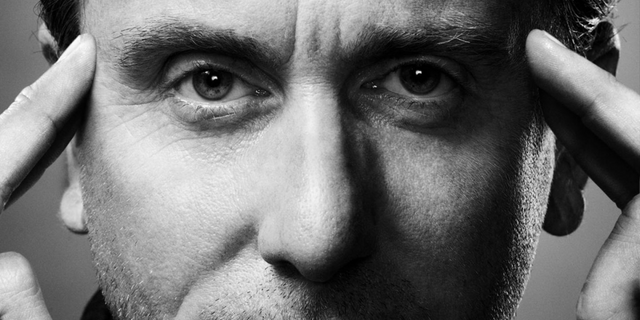Watching "Lie to Me" Decreases the Ability to Distinguish Between Truth and Lies
Lie to Me - TV drama based on science?
"Lie to Me", an american crime drama, tells the story of Dr. Cal Lightman, who together with his colleagues is responsible for understanding hidden feelings and intentions through reading body language. By interpreting other people's behaviour, the characters are able to predict with high efficiency whether someone is telling the truth or lying, and that basically is what the series' plot is all about. They provide their services, among others, to the American intelligence services, thanks to which they often help to catch criminals.
The series was promoted under the slogan that it is based on scientific knowledge and that it shows true nature of body language, microexpressions and detection of lies based on interpretations of the aforementioned in a reliable way. The protagonist was loosely based on Paul Ekman, PhD, an authority in the field of microexpressions who also became a scientific production consultant. The campaign may have attracted potential viewers with its promise to increase their effectiveness in detecting lies. Despite this, the methods of detecting hidden emotions and lies shown in the series are not supported by scientific literature. What is more, it turns out that watching "Lie to Me" reduces the ability to detect lies accurately!

Lie to Me and it's impact on lie detection
Researchers from Michigan State University conducted an experiment in which they asked more than a hundred participants to watch a series of 12 interviews with various people and to determine which of them is lying and which is telling the truth. Before, however, they divided the participants into 3 groups, one of which watched one episode of "Lie to Me", the other one of another episode of a different series (without any motive of lie detection), and the third one was a control group and did not watch any series. The researchers wanted to check whether watching "Lie to Me" would affect the ability of the participants to detect lies.
The results turned out to be quite a surprise! The group that watched "Lie to Me" turned out to be much more sceptical than the other two groups - they were much more likely to claim that the characters on the recordings were lying. However, with scepticism the effectiveness of distinguishing between lies and truth did not increase - the group watching "Lie to Me" had the same effectiveness in recognizing lies as the other groups, but it did much worse in recognizing truths! These participants attributed lies to people telling the truth 10% more often than participants watching another series and 14% more often than the control group. Thanks to scepticism that appeared in "Lie To Me" audience, the tendency for more frequent attribution of truth in other groups (so called truth bias) was eliminated, but this had a negative impact on the overall accuracy of judgements.

True nature of real time lie detection
The series is based on the assumption that it is possible to effectively detect lies in real time on the basis of careful observation and rapid analysis of behaviour, and that there are people with the natural gift of detecting lies. Contemporary studies do not support any of these claims. Bond and DePaulo studies from 2006 and 2008 show that the effectiveness of people in detecting lies is only slightly better than accidental guesswork, and that there are no significant differences in this ability in the population, even in professions that often have to deal with lies, such as policemen. A study by Frank and Feeley in 2003 showed that professional body language training only slightly improves the effectiveness of detecting lies in real time by 4%.Possible social impact
Researchers at Michigan State University concluded that "Lie to Me" is misleading, giving the impression of dealing with scientifically proven methods of detecting lies, which can lead to an unjustified increase in the sense of competence in this area. This in turn may cause more frequent erroneous attribution of lies in everyday situations. Scientists also point out that this TV drama can give the impression that law enforcement officials are effectively trained to detect lies, with negative social consequences such as excessive confidence in the effectiveness and methods of law enforcement in detecting terrorism based on body language.Literature
Bond Jr, C. F., & DePaulo, B. M. (2006). Accuracy of deception judgments. Personality and social psychology Review, 10(3), 214-234.
Bond Jr, C. F., & DePaulo, B. M. (2008). Individual differences in judging deception: Accuracy and bias. Psychological bulletin, 134(4), 477.
Frank, M. G., & Feeley, T. H. (2003). To catch a liar: Challenges for research in lie detection training. Journal of Applied Communication Research, 31(1), 58-75.
Levine, T. R., Serota, K. B., & Shulman, H. C. (2010). The impact of Lie to Me on viewers’ actual ability to detect deception. Communication Research, 37(6), 847-856.

SteemSTEM is a community driven project which seeks to promote well written/informative Science Technology Engineering and Mathematics postings on Steemit. More information can be found on the @steemstem blog. For discussions about science related topics or about the SteemSTEM project join us on steemSTEM Discord server.
DISCLAIMER: dropahead Curation Team does not necessarily share opinions expressed in this article, but find author's effort and/or contribution deserves better reward and visibility.
to maximize your curation rewards!
with SteemConnect
12.5SP, 25SP, 50SP, 100SP, 250SP, 500SP, 1000SP
Do the above and we'll have more STEEM POWER to give YOU bigger rewards next time!
News from dropahead: How to give back to the dropahead Project in 15 seconds or less
You have collected your daily Power Up! This post received an upvote worth of 1.76$.

Learn how to Power Up Smart here!
I studied non-verbal communication in college, have a psych minor, have worked in psych for many years and in life. The show depends on research and I would think they have an expert on hand when writing the show.
The one show I saw where the main guy couldn't get a read on a female judge and then it was decided to be impossible due to the judge having had botox injections in her forehead. Do you mean to tell me an expert, couldn't read anything else on the judge? I stopped watching after that.
It reminds me of the hospital shows...that stuff just doesn't happen like that. Make a show about the medication errors of doctors and nurses and you've got a likely scenario as no scene; no matter how ridiculous, dangerous or unbelievable has happened somewhere before.
While Paul Ekman's interpretations of facial micro expressions are based on a lot of solid studies throughout the years, lets not forget that 'Lie to me' is a fictional interpretation. It's purpose is to entertain, not educate.
After all it's just a fictional series.
I am glad that you made an article about this topic, because I am tired of 'experts' who quote this series and think that they have discovered something new under the Sun.
Cheers !
Yes, the problem is their campaign was somehow based on the "fact" that it has a scientific authority. It was sold as a fiction with "scientific foundations"
And it truly is. But it is not a scientific series.
Think about this example: When you see a movie which states "based on true events", do you take it as a true story or you know that it's a producer's interpretation and actually is a fiction?
Of course, what you write is obvious to me! The paper on which I based my article just pointed out that because of that kind of advertisement this can lead to real psychological changes (which probably would be lower without this "scientific" vibe). I'm not saying that it's a crime, it's more of a interesting fact ;)
Yeah, I feel you.
Sadly such propaganda does more harm than being useful..
good post man, i like this kind of facts.
Movies and Tv series usually exaggerate things so much & people actually believes what is being shown on media right away.I'm glad I was able to read your article. It was well written buddy. Good job ! :)

Thank you sakura! Your post about stimulants is very well done!
Wow thanks. Thats so nice of you @saunter. :)